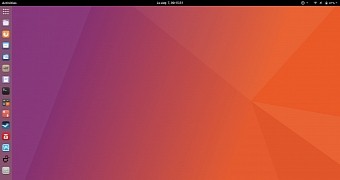Work on the Ubuntu 17.10 (Artful Aardvark) operating system continues, and since the development process became so transparent lately, we can tell you today that the latest GCC 7 has become default compiler.
Last week when we reported on the upcoming Feature Freeze stage for Ubuntu 17.10, which is currently set for August 24, we also told you that the GCC 7, Python 3, Perl 5.26, and libevent transitions are still in progress. As of today, Canonical reports that GCC (GNU Compiler Collection) 7 is the default compiler in Artful.
Canonical says that this major changed unblocked many of the packages that had been stuck in the artful-proposed repository, including the new Linux 4.12 kernel packages. It also looks like the Perl 5.26 transition is complete, which unblocked more of those stuck packages in Ubuntu 17.10's proposed repo.
"As GCC 7 is now the default compiler in artful, the build failures reported at https://qa.ubuntuwire.org/ftbfs/rebuilds/test-rebuild-20170706-gcc7-artful.html now apply to 17.10. Please help us resolve these failing packages for the release," said Canonical in the latest Ubuntu Foundations Development newsletter.
Qt 5.9 transition still in progress
Next week, Canonical will focus on the Qt 5.9 transition for Ubuntu 17.10, as well as on finishing the Unity to GNOME Shell transition with all the promised changes. At the end of the month, we expect to get our hands on the first Beta release, which will be released only for opt-in flavors.
Ubuntu 17.10 itself will be available in a Beta form next month, on September 28, when Canonical is releasing the Final Beta milestone. The final release of Ubuntu 17.10 (Artful Aardvark) is hitting the streets on October 19, 2017, with Linux kernel 4.13 and most of the packages from the upcoming GNOME 3.26 stack.
In other news, Canonical recently released updated Ubuntu Cloud images with a fix for the CVE-2017-7533 Linux kernel vulnerability affecting the fsnotify implementation, which could allow a local attacker to gain administrative privileges or cause a denial of service (memory corruption).

 14 DAY TRIAL //
14 DAY TRIAL //